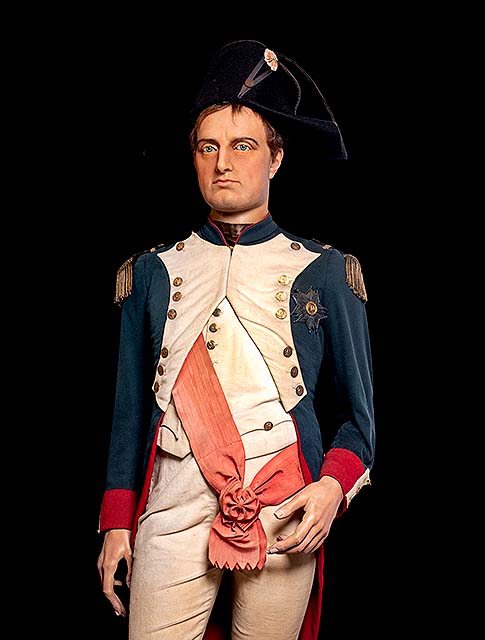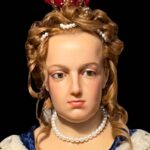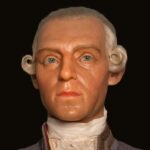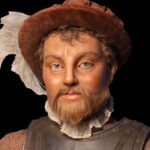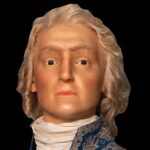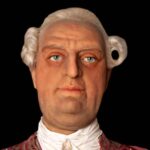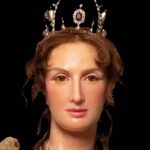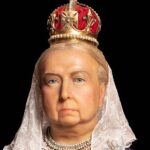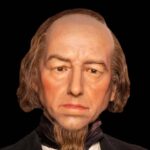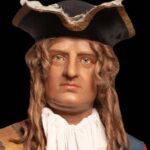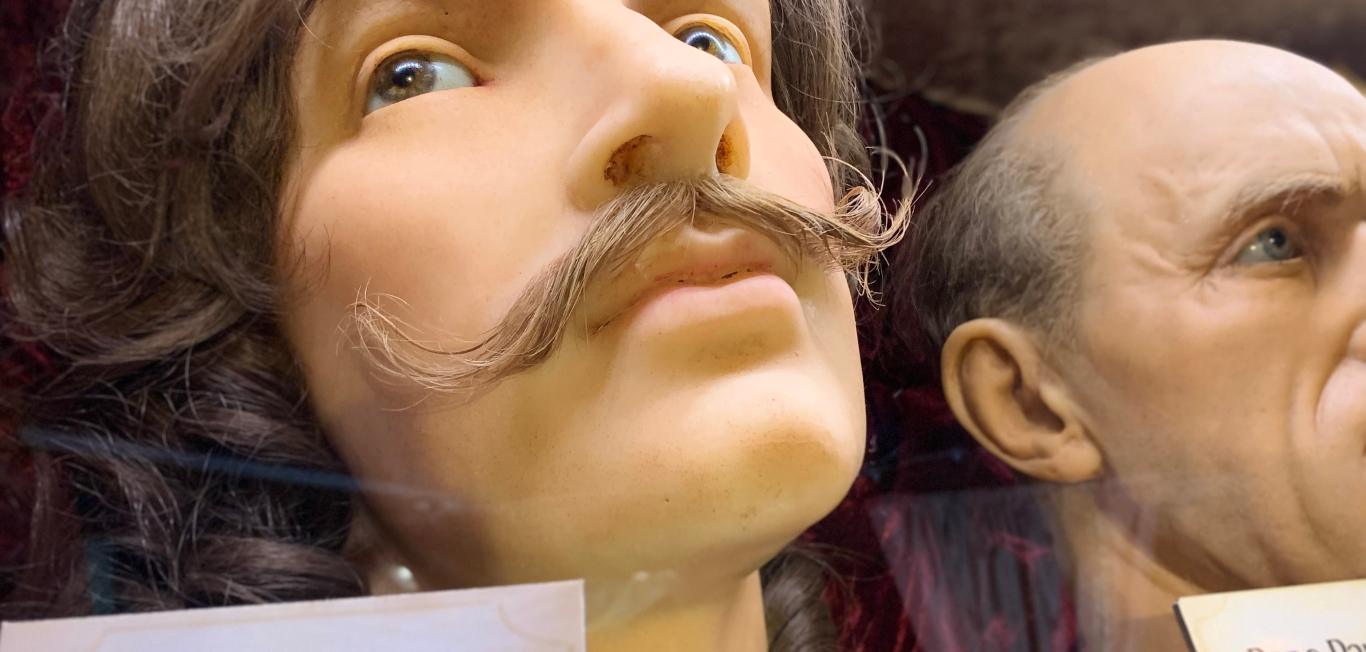About Napoleon Bonaparte
Napoleon Bonaparte’s biography documents the fascinating events of his rise to power and his eventual downfall. He is an iconic figure in European history due to his success in the French Revolution and the transformation he made in political and societal France during the Napoleonic era. Napoleon was born in Ajacco, Corsica, France, on August 15, 1769. He was a descendant of Italian nobles but would spend his life as a figure in the French military.
Napoleon is remembered as a military genius and a charismatic leader who held power in Italy and France. It was during the French Revolution that Napoleon Bonaparte rose to power through various military campaigns. Most significantly, his coup d’état in 1799 resulted in his being self-appointed as France’s First Consul. In 1804, he began his reign as Emperor of France and spent the next 10 years reshaping Europe’s bureaucracy and providing significant societal changes through his Napoleonic Code.
Napoleon Bonaparte’s life legacy also led to his eventual downfall. At the end of his reign, he was exiled to the island of Saint Helena. He spent his remaining days there and his body would not be returned to France for nearly 20 years after his death.
DID YOU KNOW?
At the end of his reign, Napoleon was exiled to the island of Saint Helena.
Early Years
By the age of nine, Napoleon Bonaparte moved to France to begin his education. He attended three schools throughout his formative years. His studies began at a religious school in January 1779 and by May he secured a scholarship and was transferred to a military academy at Brienne-le-Cĥteau. In 1784, Napoleon completed his academics at Brienne at the age of 15. His next endeavor was military training at École Militaire in Paris, where he trained to be an artillery officer. He was skilled in military affairs and proved to have literary talent as well. In his youth, he wrote “Lettres sur la Corse,” which were his feelings for his native island and his connection to his Corsican roots.
Napoleon was not the eldest son, but in the event of his father’s death, he assumed the role of head of the family before he was 16 years old. Combined, the responsibility he took for his family and his military training set him up for success in his future endeavors. Napoleon Bonaparte’s early life instilled in him leadership and determination, which were crucial to his success throughout his turbulent military and political career and characterized him as one of the most prolific figures in European history.
Personal Life
Napoleon Bonaparte’s personal life was as intriguing as his meteoric rise in the world of politics and warfare. His relationships and marriages provide a glimpse into the complex man behind the iconic figure.
Napoleon was married twice, and only one of the unions produced an heir. In 1796, Napoleon married his first wife, Josephine de Beauharnais. She was a widow with two children. Their marriage was passionate but quite tumultuous, as it ended in divorce in 1810 due to their inability to have children.
Later in 1810, Napoleon married his second wife, Marie Louise. She was the daughter of Francis II, the Holy Roman Emperor and Emperor of Austria. Their union was mostly bureaucratic, stabilizing Napoleon’s ability to strengthen alliances in Europe. Napoleon and Marie had one son, Napoleon II, who briefly held the title of King of Rome.
Napoleon Bonaparte had only one legitimate child and several illegitimate progeny, noting the several passionate relationships he had throughout his life.
Interesting Facts
Napoleon Bonaparte’s life has significant historical interest, as he had several pivotal achievements that transformed European history. Aside from Napoleon’s military and regnal success, there is a broad range of fascinating lesser-known facts about him.
In his youth, Napoleon wrote a romance novel titled “Clisson et Eugénie.”
Although he was a man of many talents, Napoleon Bonaparte was tone-deaf and lacked musical aptitude.
It is still up for debate, but several accounts suggest that Napoleon had ailurophobia, which is a fear of cats.
During his time in Egypt, Napoleon’s army discovered a crucial artifact for deciphering ancient hieroglyphics. They found the Rosetta Stone.
Napoleon was always prepared for dire circumstances such as capture or assassination. It is rumored that he wore a necklace filled with poison as a precaution.
During his exile to Saint Helena, it is speculated that Napoleon devised a daring plan to escape. Although it was never executed, he schemed to be rescued from the island by submarine.
Napoleon’s cause of death remains a topic of debate. There are several theories, but the most supported are arsenic poisoning and stomach cancer.
Napoleon Bonaparte had immense military success, reaching the level of army general by the age of 26.
After he returned from his first exile to Elba, Napoleon briefly regained control of France in 1815. His return to power was a peaceful transition, without a single shot firing.
Napoleon is known as one of history’s greatest military strategists. His reputation is built upon his successes in battle, which leads historians to theorize Napoleon won more than half of the battles he led.
Originally of Italian descent, Napoleon grew up in France and learned to speak the French language. Due to French being his second language, he spoke with a Corsican accent, which those who spoke Parisian French found odd.
Napoleon Bonaparte’s Influence
Napoleon Bonaparte’s life story can be summarized by stating that he was one of the most brilliant military leaders in history, rising to prominence during the French Revolution. There are several key achievements that solidified his place in history. His success as one of the most accomplished generals of the French Revolutionary armies paved the way for his ascension to power. By the end of the French Revolution, he was appointed as France’s First Consul. From 1804 to 1814, he reigned as king of Italy and emperor of France, marking this period as the Napoleonic era.
DID YOU KNOW?
By the end of the French Revolution, Napoleon was appointed as France's First Consul.
Napoleon Bonaparte and the French Revolution
The French Revolution was a decade-long event that led to the rise of Napoleon Bonaparte. From 1789 to 1799, France went through a turbulent period of political and societal changes that saw the public rise against the monarchy, overthrowing the king of France and executing the royal family, as well as several aristocrats.
In the early stages of the French Revolution, Napoleon assumed the role of artillery commander for the Siege of Toulon in 1793. His success in the siege resulted in a promotion to brigadier general at the age of 24. Napoleon’s leadership skills and strategic acumen were recognized by the leaders of France and were essential to his rise through the ranks during the most violent time of the revolution. On November 8, 1799, Napoleon staged a coup and appointed himself as the French First Consul.
How He Lived Out the Remainder of His Life
After the Battle of Waterloo in October of 1815, Napoleon Bonaparte was exiled for a second time. He was sent to the remote, British-controlled island of Saint Helena in the South Atlantic. Napoleon’s life story ends here, as he remained in Saint Helena until his death at the age of 51 on May 5, 1821. To this day, it is unclear what his cause of death was, but many suspect he succumbed to stomach cancer.
In the event of Napoleon Bonaparte’s death, he requested to be laid to rest on the “banks of the Seine.” Instead, he was buried on the isolated island. Nineteen years after his burial, his remains were returned to France, where he was given a final resting place in the grand crypt at Les Invalides in Paris. The death of Napoleon concluded an eventful life story, but his legacy and impact on the world continue to be remembered and studied to this day.
DID YOU KNOW?
Nineteen years after his burial, Napoleon's remains were returned to France.
FAQs
Where did Napoleon grow up?
Napoleon was born in Ajacco, Corsica. Corsica is an island in the Mediterranean Sea and one of the 18 regions of France.
How did Napoleon support the French Revolution?
Napoleon supported the French Revolution by making education accessible regardless of religion and introduced new laws that gave the French more freedom.
What were Napoleon’s three major mistakes?
Napoleon’s three major mistakes were his unsuccessful invasion of Russia, his inability to prevent other European countries from trading with Great Britain, and the Peninsular War, which drained France’s military and resources.
Why was Napoleon defeated?
Napoleon was defeated at the Battle of Waterloo due to his mismanagement of troops and his delaying the start of the battle, which gave Prussia the ability to support the British troops. His Imperial Guard was defeated due to the British having a field advantage.
